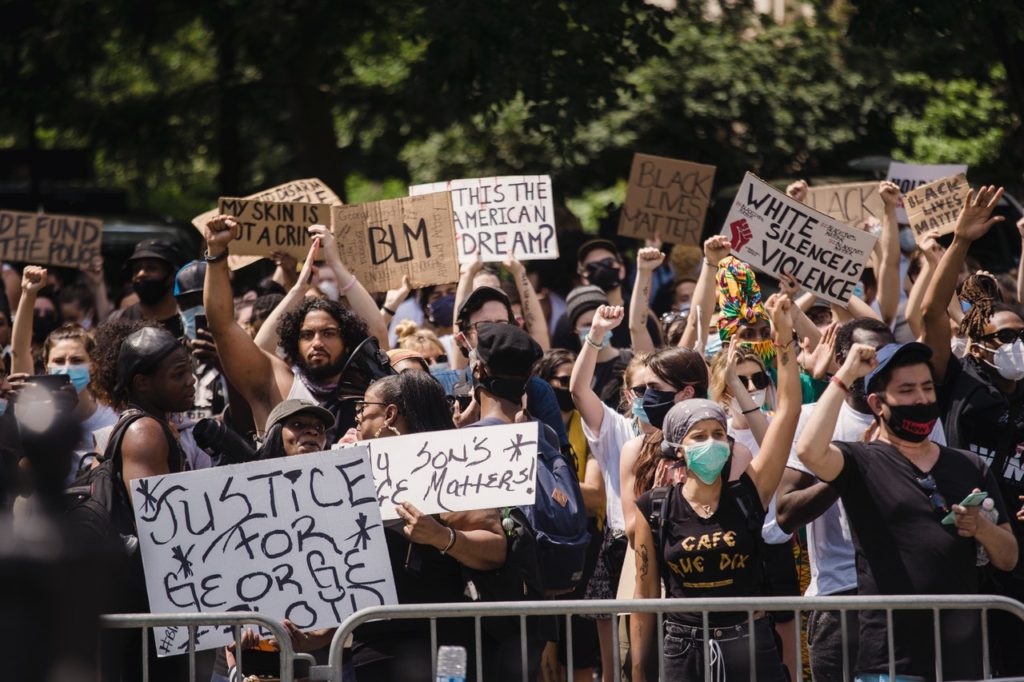Citi has estimated that the financial cost of racial inequality in the US totals a whopping $16 trillion over the last two decades. This loss includes gaps in wages, access to housing and higher education and investment in Black-owned businesses, cites the bank’s Global Perspectives & Solutions (GPS) report. However, if the inequality gaps are closed, the US can reverse this trend and gain trillions, cites the report.
Entitled Closing the Racial Inequality Gaps: The Economic Cost of Black Inequality in the US, it also contains guidelines for the government, corporations and individuals to help them do their bit to close the existing inequality gaps.
“Racial inequality has always had an outsized cost, one that was thought to be paid only by underrepresented groups,” noted Raymond J McGuire, Vice Chairman of Citigroup and Chairman of Banking, Capital Markets and Advisory at Citi. “What this report underscores is that this tariff is levied on us all, and particularly in the US that cost has a real and tangible impact on our country’s economic output. Now, more than ever, we have a responsibility and an opportunity to confront this longstanding societal ill that has plagued Black and brown people in this country for centuries, tally up the economic loss and as a society, commit to bring greater equity and prosperity to all.”
POTENTIAL ECONOMIC GAINS
The report identifies the underlying causes of the racial and economic gaps exacerbated by the COVID-19 pandemic. It also explains the value of closing gaps. The report’s authors believe that if racial inequity gaps were closed today, the US economy could benefit from approximately $5 trillion of additional GDP over the next five years.
“One important thing that we can do is to show the costs of racial inequality through objective analysis which is what the authors of this report have sought to demonstrate,” added Dr Catherine L Mann, Global Chief Economist at Citi and one of the principal authors of the report. “Our overarching goal for the Citi GPS series is not only to tackle the key opportunities and challenges of the 21st century, but also to address complex societal questions and not to shy away from difficult subjects. As such, we believe that we have a responsibility to address current events and to frame them with an economic lens in order to highlight the real costs of longstanding discrimination against minority groups, especially against Black people, and particularly in the US.”

CALCULATING THE DAMAGE
According to Citi, closing the Black racial wage gap 20 years ago could have provided around $2.7 trillion for consumption and investment. Improving access to housing credit might have added an additional 770,000 Black homeowners over the last 20 years. Combining sales/expenditures would have added, say, another $218 billion to GDP over that time.
Furthermore, facilitating increased access to higher education for Black students might have bolstered lifetime incomes providing additional income of around $90 to $113 billion. It also found that providing fair and equitable lending to Black entrepreneurs might have resulted in the creation of an additional US$13 trillion in business revenue over the last 20 years. That could have been used for investments in labour, technology, capital equipment and structures. In fact, closing the inequality gap could have potentially created 6.1 million jobs per year, cites the report.

Image credit: Pixabay
RECOMMENDATIONS FOR GOVERNMENT
The report provides recommendations that the public and private sectors can take to help close the racial inequality gaps. It also gives the Government a few suggestions on what steps to take to help reduce inequality. They include:
- An inclusive Monetary policy. The Fed has recently signalled a willingness to enhance its focus on inequality, indicating its policies will focus on ‘broad-based and inclusive’ job gains. It will also focus on both maximum employment and a target inflation rate.
- Encourage work. Reforming tax benefits and application of specialised tax reforms to encourage work among lower income families to help reduce racial gaps. For example, through earned income tax credit or child tax credit.
- Provide guaranteed wages, income support and jobs. Policy suggestions include raising minimum wage, creating a ‘living wage’, introducing income supplements or supports and stabilising jobs.
CORPORATE RESPONSIBILITY
The report recommends that companies also do more to close the inequality gap by:
- Supporting initiatives from the top. Initiate a focus on diversity and inclusion at the top of the company with senior management and cascading that view down the ranks.
- Addressing racial gaps in hiring, retention and firing. Implement policies that are more conscious of addressing racial gaps in hiring, retention and firing.
- Engaging in corporate social responsibility. Take direct action by bolstering external communities and supporting minority-owned firms.
- Dismantling structural barriers to hiring black talent. Engage fully with “fair chance hiring” to encourage the recruitment of qualified job applicants with criminal histories.

INDIVIDUAL ROLE
Citi also recommends that all individuals do their bit to get ahead by ensuring that they use education as a pathway for advancement. “Parents can advocate for greater accountability from and funding for local schools while students can focus on job-relevant skills including STEM, problem-solving, teamwork, and communications,” notes the report. It also advises individuals to:
- Advocate for their career. Seek mentors, advocates and sponsors while considering relocating to increase job prospects or starting one’s own business.
- Embrace delayed gratification and risk. Increase financial literacy as an avenue for financial independence, including investing in the stock market.
Click here to download the report.







































